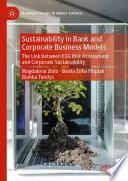
Proceedings of the International Conferences on Education Technologies (ICEduTech) and Sustainability, Technology and Education (STE) (New Tapei City, Taiwan, December 10-12, 2014)
These proceedings contain the papers of the International Conferences on Educational Technologies (ICEduTech 2014), and Sustainability, Technology and Education (STE 2014). The International Conference on Educational Technologies (ICEduTech 2014) is the scientific conference addressing the real topics as seen by teachers, students, parents and school leaders. Scientists, professionals and institutional leaders are invited to be informed by experts, sharpen the understanding of what education needs and how to achieve it. Topics for the ICEduTech Conference include: (1) Education in Context: Education in the Network Society, Educational Games, Social Media in Education, Home Schooling, Students' Rights, Parents' Rights, Teachers' Rights, Student-Safe Searching, School Violence, Education and Tolerance for Peace and Education in Developing Countries; (2) Education as Professional Field: Teacher Education, Teachers' Professional Development, Teachers' Workload, Teacher Support for Grading, Time Tabling, Grading, Learning Tools, and Online Learning Software, Teachers' learning in Communities of Practice, Web-based Communities for Teacher Support, Teachers' Career Planning, Legal and Financial Issues, Conflict Resolution and Mediation, Governance and Servant Leadership and Educational Policies; (3) Curricular Evolution: Problem-based Learning, Critical Thinking Skills, Creativity Skills, Learning Citizenship, Global Education, Media Literacy / Pedagogy, Multicultural Education and Alternative Assessment Methods; (4) Learner Orientation: Student-Oriented Learning, Peer- and Collaborative Learning, Learning Strategies: Learn how to Learn, Motivating Students, Recognizing Students' Learning Styles and Special Education; (5) Integrating Educational Technologies: Social Media and Social Networking, The Semantic Web 3.0, Podcasting for Broadcasting Video Lectures, Podcasting feedback to students, Wiki and blogs in Higher Education, Mobile, Virtual and Vicarious Learning and Simulations and Modeling; and (6) International Higher Education: Marketing Higher Education as a Business Case, Pitfalls and Solutions in Joint and Double Degree Programs, Enculturation and International Teacher Accreditation, Web-based, Mobile, Virtual Presence and Social Media to Overcome Student Mobility, Blended Learning and Student Assessment at a Distance, Student Mobility and Distance Education, New-Emerging Standards and Benchmarks for Higher Education, Education, Research, Exchange and Capacity Building, 21st Century Academic and Industrial Brain Exchange, Academic Salaries, Faculty Contracts, Residence Permits and Legal Issues, International Student Exchange Funding Programs: Erasmus Mundus, the U.S. Council on International Educational Student Exchange, and the Euro-American "Atlantis" program, Networks for International Higher Education in the Pacific, Australia, Europe, Asian and European countries and Higher Education, Cultural Diversity, Tolerance and Political Conflict. The International Conference on Sustainability, Technology and Education (STE) aims to address the main issues which occur by assessing the relationship between Sustainability, Education and Technology. Broad areas of interest are: Sustainability and Leadership, Sustainability and Green IT, Sustainability and Education. Following three Keynote Lectures by Chun-Yen Chang, David Tawei Ku, and Pedro Isais, the full papers presented are as follows: (1) The Study of Adopting Problem Based Learning in Normal Scale Class Course Design (Chia-ling Hsu); (2) Student Learning Through Hands-On Industry Projects (Lingma Lu Acheson); (3) A Study of Facilitating Cognitive Processes with Authentic Support (Rustam Shadiev, Wu-Yuin Hwang, Yueh-Min Huang and Tzu-Yu Liu); (4) Mobile-Assisted Second Language Learning: Developing a Learner-Centered Framework (Choy Khim Leow, Wan Ahmad Jaafar Wan Yahaya and Zarina Samsudin); (5) Social Interaction Development through Immersive Virtual Environments (Jason Beach and Jeremy Wendt); (6) Teaching and Learning in the Digital Era: A Case Study of Video-Conference Lectures from Japan to Australia (Seiko Yasumoto); (7) Lessons Learnt from and Sustainability of Adopting A Personal Learning Environment & Network (PLE&N) (Eric Tsui and Farzad Sabetzadeh); (8) Studying Challenges in Integrating Technology in Secondary Mathematics with Technological Pedagogical and Content Knowledge (TPACK) (Dorian Stoilescu); (9) Building Better Discipline Strategies for Schools by Fuzzy Logics (Dian-Fu Chang, Ya-Yun Juan and Wen-Ching Chou); (10) Assessing Critical Thinking Performance of Postgraduate Students in Threaded Discussions (Cheng Lee Tan and Lee Luan Ng); (11) Work-Integrated Learning with Work-Integrated Learners (Martin Gellerstedt and Tobias Arvemo); (12) A Framework for Gamified Activities Based on Mobile Games (Ana Amelia Carvalho, Ins̊ Araj͠o and Nelson Zagalo); (13) The OpenForest Portal as an Open Learning Eosystem: Co-Developing in the Study of a Multidisciplinary Phenomenon in a Cultural Context (Anu Liljestrm̲, Jorma Enkenberg, Petteri Vanninen, Henriikka Vartiainen and Sinikka Pl̲lñen); (14) Designing Participatory Learning (Henriikka Vartiainen); (15) The Relationship among Principals' Technology Leadership Teaching Innovation, and Students' Academic Optimism in Elementary Schools (Chuan-Chung Hsieh, Hung-Chin Yen and Liu-Yen Kuan); (16) Design Research Methods for Future Mapping (Sugandh Malhotra, Prof. Lalit K. Das and Dr. V. M. Chariar); (17) Makahiki: An Open Source Serious Game Framework for Sustainability Education and Conservation (Yongwen Xu, Philip M. Johnson, George E. Lee, Carleton A. Moore and Robert S. Brewer); (18) The Relationships among Principals' Distributed Leadership, School Knowledge Innovation and ICT Use in Taiwanese Elementary Schools (Chuan-Chung Hsieh, Jui-Hsuan Hung and Hao-Chiou Li); (19) Beauty of Wholeness and Beauty of Partiality "New Terms Defining the Concept of Beauty in Architecture in Terms of Sustainability and Computer Aided Design (Ayman A. Farid, Weaam M. Zaghloul and Khaled M. Dewidar); (20) Galvanizing Local Resources: A Strategy for Sustainable Development in Rural China (Eun Ji Cho); (21) Teaching Assembly for Disassembly: An Under-Graduate Module Experience (Eleftheria Alexandri); and (22) System-Events Toolbox- Activating Urban Places for Social Cohesion through Designing a System of Events that Relies on Local Resources (Davide Fassi and Roberta Motter). Short Papers include: (1) A Design and Development of Distance Learning Support Environment for Collaborative Problem Solving in Group Learners (Takuya Nitta, Ryo Takaoka, Shigeki Ahama and Masayuki Shimokawa); (2) Academic Use of Social Media Technologies as an Integral Element of Informatics Program Delivery in Malaysia (Jane See Yin Lim, Barry Harper and Joe F. Chicharo); (3) Digital Storytelling across Cultures: Connecting Chinese & Australian Schools (Mark Pegrum, Grace Oakley, Cher Ping-Lim, Xi Bei Xiong and Hanbing Yan); (4) A Study on Building an Efficient Job Shadowing Management Methodology for the Undergraduate Students (Koichi Sakoda and Masakazu Takahashi); (5) Using Tablet PCS in Classroom for Teaching Human-Computer Interaction: An Experience in High Education (Andre Constantino da Silva, Daniela Marques, Rodolfo Francisco de Oliveira and Edgar Noda); (6) Technology and Motor Ability Development (Lin Wang, Yong Lang and Zhongmin Luo); (7) The Integrated Framework of College Class Activities--Using Learn Mode with the Introduction of Educational Technology as an Example (Chia-Ling Tsai and David Tawei Ku); (8) Training Pre-Service Chinese Language Teachers to Create Instructional Video to Enhance Classroom Instruction (Lih-Ching Chen Wang and Ming-Chian Ken Wang); (9) Using Project-Based Learning and Google Docs to Support Diversity (Amy Leh); (10) Exploring Social Equity Aspects in Integrating Technology in Primary Mathematics Education (Dorian Stoilescu); (11) Chinese Fantasy Novel: Empirical Study on New World Teaching for Non-Native Learners (Bok Check Meng and Goh Ying Soon); and (12) Building of a Disaster Recovery Framework for E-Learning environment Using Private Cloud Collaboration (Satoshi Togawa and Kazuhide Kanenishi). The reflection papers include: (1) Stoic Behavior Hypothesis in Hint Seeking and Development of Reversi Learning Environment as Work Bench for Investigation (Kazuhisa Miwa, Kazuaki Kojima and Hitoshi Terai); (2) Alternative Assessment Methods Based on Categorizations, Supporting Technologies and A Model for Betterment Marion G. Ben-Jacob and Tyler E. Ben-Jacob; (3) Wiki -Enhanced Scaffolding to Encourage Student Participation in a Content and Language Integrated Learning (CLIL) Classroom (Chun-Yi Lin) ; and (4) Pragmatics and Seminotics: Movies as Aesthetic Audio-Visual Device Expedite Second Language Acquisition (Lucia Y. Lu). Individual papers contain references. An author index is included. [These conferences are co-sponsored by Curtin University, Curtin Business School (Australia), and the International Society for Professional Innovation Management.].
- ISBN 13 : 9789898533302
- ISBN 10 : 9898533307
- Judul : Proceedings of the International Conferences on Education Technologies (ICEduTech) and Sustainability, Technology and Education (STE) (New Tapei City, Taiwan, December 10-12, 2014)
- Pengarang : International Association for Development of the Information Society (IADIS),
- Bahasa : en
- Tahun : 2014
- Halaman : 278
- Google Book : http://books.google.co.id/books?id=N2ZBvwEACAAJ&dq=intitle:Education+Management+in+Digital+Era&hl=&source=gbs_api
-
Ketersediaan :
008063 Tersedia di Library of UI BBC
These proceedings contain the papers of the International Conferences on Educational Technologies (ICEduTech 2014), and Sustainability, Technology and Education (STE 2014).




